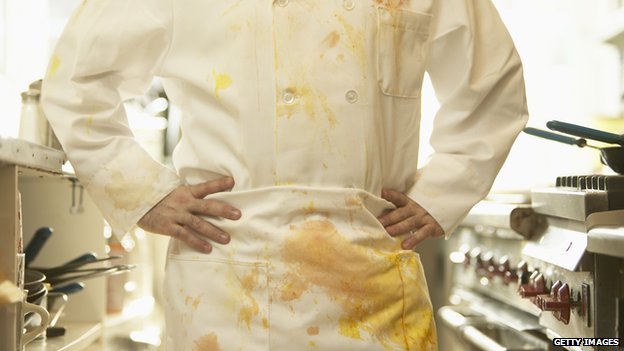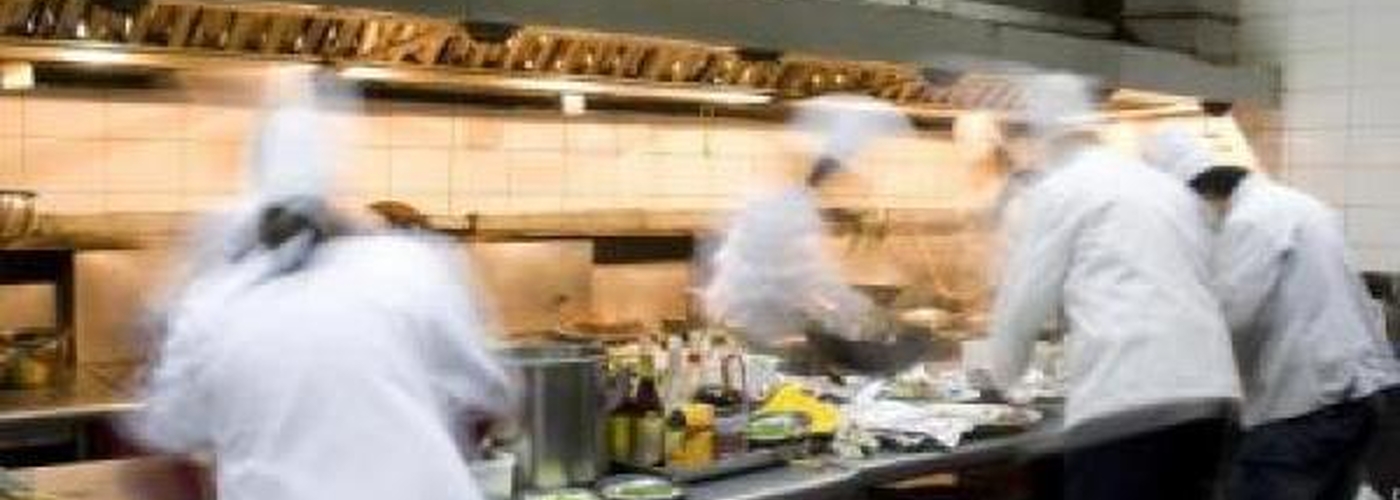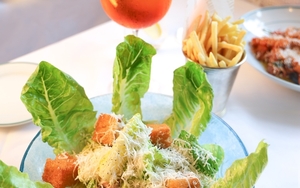Serving meat 'on the turn' and other dirty sins rife in top restaurants, study finds
CHEFS from top restaurants across Liverpool, Manchester and beyond have revealed the secrets of what goes on behind kitchen closed doors - and it’s not for the faint hearted.
A report published today, by a team of researchers from Liverpool, Manchester and Bangor universities, highlights the levels of bad behaviours in our dining establishments - all increasing the risk of customers suffering food poisoning.
The study of over 200 North West chefs reveals that one third of them had worked in kitchens which served meat “on the turn, while over 30 percent had worked in a kitchen within 48 hours of suffering from diarrhoea and/or vomiting.
Chefs in award-winning kitchens were more likely to have returned to work within 48 hours of suffering from diarrhoea or vomiting
Around 16 percent had served barbecue chicken when not sure it was fully cooked, and seven percent admitted to not always washing their hands immediately after handling raw meat or fish.
And shockingly for the public, it seems, being able to successfully disguise meat that has a bit of a whiff about it is a cheffing skill likely to impress the hell out of a potential employer.
Academics carried out the study as part of the Enigma project, a large collaborative programme of research into the most common bacterial cause of diarrhoeal disease in the developed world, campylobacter.

Undercooked barbecue chicken is associated with campylobacter and, in addition, chefs returning to work too soon after suffering from diarrhoea and/or vomiting have been implicated in high-profile food poisoning outbreaks, said a spokesman at the University of Manchester.
The research, published in journal PLOS ONE, found that avoiding eating where such conduct takes place is not easy for the public.
This was because chefs working in the pressurised environments of award-winning kitchens were more likely to have returned to work within 48 hours of suffering from digestive upsets. In addition, a failure to wash hands was more likely in upmarket establishments - despite over a third of the public being under the impression that the more expensive a meal was, the safer they would expect it to be.
"Chefs working in restaurants with a good Food Hygiene Rating Scheme score were just as likely to have committed the risky behaviours at some time in their career, or to have worked with others who had," said the spokesman.
So how were chefs persuaded to spill the potentially incriminating beans?
It turns out, by a roll of the dice. Understanding that chefs might not want to reveal their darkest kitchen secrets, researchers used something called the Randomised Response Technique (RRT).
"It involved those surveyed rolling two dice in secret, and switching their answers (Yes to No; No to Yes) according to the values they rolled," the spokesman (sort of) explained.
"The technique makes people more prepared to reveal the truth than just asking them directly, and the researchers were able to recover the true rates of the bad behaviours from the data.”
Professor Dan Rigby, from the University of Manchester, said: "Foodborne illnesses impose a huge burden to the UK population, and these results indicate a high prevalence of behaviours which can give people food poisoning.”
Rigby, one of the lead authors of the study, added: "Masking the smell and taste of meat on the turn is an old industry trick, and the ability to do it means restaurants can cut costs. Showing you can do it shows a potential employer you are experienced in the industry.
“It is notable that chefs in fine dining establishments were more likely to have returned to work too soon after suffering diarrhoea and/or vomiting, contravening UK regulations. This may be that fear of losing a prestigious job, or a desire not to let the team down, is causing people to not to stay away for long enough, putting the public at risk.”
Rigby added: “Staff currently working in kitchens with higher prices, more awards or a good Food Hygiene Rating Scheme were no less likely to have committed the bad behaviours or to have worked with colleagues who had in the past - meaning that the public face a difficult challenge to protect themselves from these bad kitchen behaviours.”

The University of Liverpool’s Professor Sarah O'Brien, said: "We know that food handling behaviours can create or worsen food safety hazards. By bringing together researchers from different scientific disciplines in the ENIGMA project, we now have a much better idea of what really goes on.”
There are an estimated 500,000 cases of foodborne disease linked to known pathogens in the UK annually, associated with medical, financial and welfare costs estimated to be more than £1.8 billion. About 60 percent of foodborne disease outbreaks in Britain are linked to eating establishments and commercial caterers.
The study sampled 237 chefs and working catering students and 905 members of the public.
The research was conducted as part of the enigma project (), funded by the Medical Research Council, Natural Environment Research Council, Economic and Social Research Council, Biotechnology and Biosciences Research Council and Food Standards Agency.















